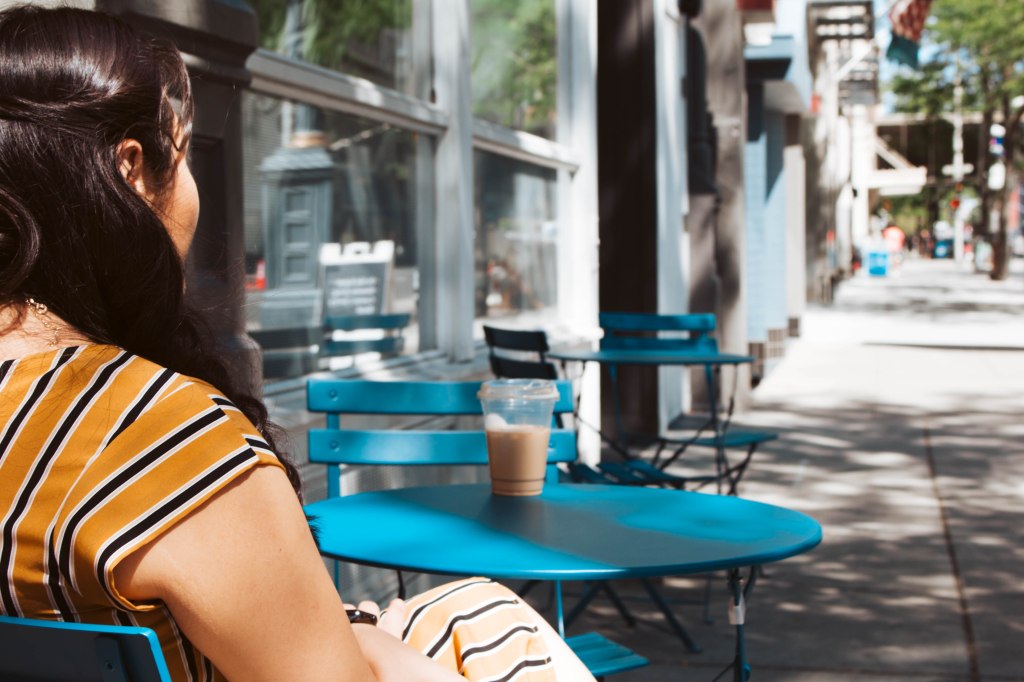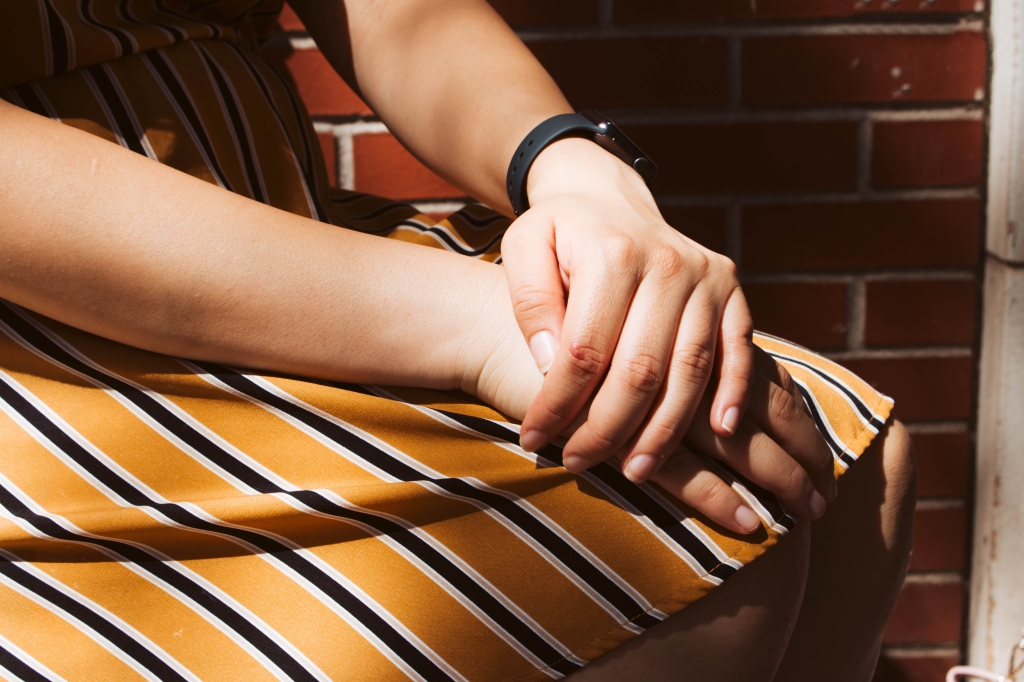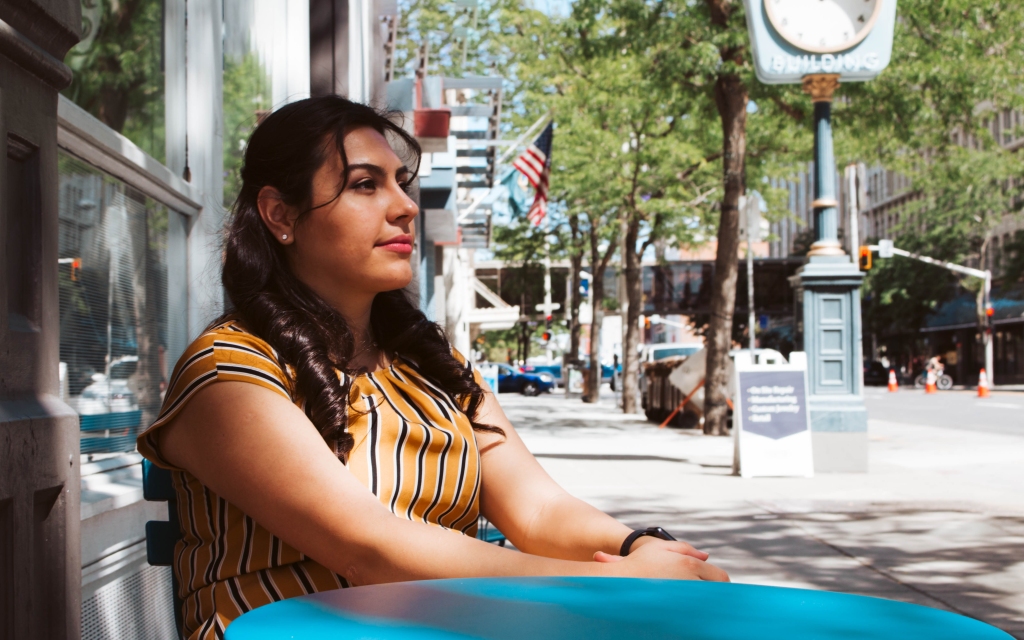Last week, we sat down with Denisse Lopez-Arce, a local CNA, medical interpreter and COVID-19 front-line hero working at Sacred Heart Medical Center. She’s also a Dreamer. Denisse arrived in the U.S. with her parents when she was just a year old. Since then, she has committed to serving her community as a stellar student, college graduate and licensed CNA. Her family is deeply committed to their church community in Arizona where her father serves as a pastor. She has worked hard her whole life to contribute, and with the DACA program under fire, the fruit of her labor is at risk.
“There have been many times in my journey where I felt like everything that I have worked for was slipping away because I don’t have a Social Security number. I was in elementary school when it first became real that I was an immigrant: my parents sat me down and they were like, ‘Okay, Denisse, you need to know that if for whatever reason me and your mom don’t come home, this is what you need to do, these are phone numbers.’ From that moment on, that fear of coming home and not seeing my parents was always there. It didn’t become real for me that I was undocumented until everyone started getting their licenses and I was one of the only ones not driving. My mom would still drive me to school or friends would pick me up just because we didn’t want to risk it. And it was really hard for me to know that because I have a capacity—I can do so much! I’m just not allowed because I don’t have a SSN.
“Later in high school, I did a tech kind of class to become a CNA and went through this entire course in a year. When the time came to get certified, to get my CNA license, I was filling out the application and they asked for a SSN. I remember sitting there and looking at it like I wanted to cry. I was like, ‘is everything that I just did this entire year going to be for nothing because I can’t take the test?’ I’d passed everything in the class. All I needed to do was take the actual certification test. I pretty much had to play it off like it was no big deal. I remember I felt so ashamed although it wasn’t my fault.

“Junior year I started getting recruitment letters from all the state universities in Arizona because my grades were great. Senior year came along, and I was getting letters like, ‘you’ve been pre-accepted, all you have to do is just finish your application and you can come.’ And I was so hopeful. Throughout my entire educational career, I’ve had outstanding awards. My mom still has awards with signatures from the president, like President Bush, for my ‘presidential academics.’ When I graduated from high school, I didn’t just graduate with a normal diploma: I graduated with what’s called a silver diploma showing the student went above and beyond what was recommended. But then looking into it, I couldn’t really go to a state school or even the community college where I grew up. I’m like, ‘You guys don’t want me all because I don’t have a Social Security number?’ And I gave up, really.
“Then I met this recruiter from Grand Canyon University and she’s like, ‘just apply and see what happens.’ I wanted to study medicine, and I heard that their program was really good—it was one of the top in Arizona. So I just applied. I remember getting an acceptance letter and two scholarships from them because of my grades. At that time, we were going through this legal process. I thought maybe now I could go to school. The lawyers were still working through it, but we had gotten permission to work and be here. I was ecstatic! We had been working through that since I was little. We got ripped off—at one point somebody said they would help, and they took our money and ran. Other lawyers would help us out at first, they’d fill out everything, take our money and then all of a sudden, they’d drop our case. When this lawyer was able to get us social security numbers, we were really hopeful. I applied for FAFSA. Things came through and I ended up getting a grant and another scholarship. All summer went by, I moved into the dorms and school started. I think we were maybe two weeks into the semester when I got an email saying, ‘Hey, this is your financial aid counselor, we need you to come in.’ And I was like, ‘what’s going on?’ I knew I still needed to pay a little bit out of pocket, but we had already set up a payment plan for it. So I go in and I’m like, ‘what’s going on?’ And I remember sitting in front of the financial aid counselor and they’re like ‘your grant from FAFSA couldn’t go through. You’re not really a U.S. Citizen, so these aren’t real scholarships for you.’ They told me I either had to set up a new payment plan or leave. I walked out of that building and bawled my eyes out and I called my parents. I was broken, almost. Everything I’ve been working for, everything that I’ve dreamt about, everything that’s been going on, it was very much like, ‘what am I going to do?’ This was before DACA happened.
I was in college when the news came out. Everyone that I knew was calling each other and we were all like, “Did you hear the news? How soon can we apply? What do we need to do?” I got so many calls that day. At first I was kind of was skeptical. They’ve been talking about things like DACA for a long time and, and it had never gone through. I didn’t want to get my hopes up. But I remember looking at my computer doing homework or something, and the tears just rolling down my face. Like I said, that was the moment I realized that my dreams couldn’t be so easily taken away from me anymore. It was like I could breathe, at least for that one moment in time—I could breathe. Even though it wasn’t and still isn’t a pathway to citizenship, in that moment it felt like I was one step closer, like everything that I’ve done hasn’t been for nothing.

“I don’t think people realize how much people applying to DACA have to go through. The whole process is hectic, really. We found this lady down in Phoenix that really did her research on DACA when it first came out, and she gave us the list of things I needed to apply. Thankfully, my mom is a hoarder when it comes to my awards, so I was able to find all these documents from elementary school and middle school proving that I’d been here long enough and that I’ve been an outstanding citizen. We had to go to the police station and run a background check. We went through all our photos, pinpointing dates of when we were here in the U.S. and we gave her those. Most people are surprised that I have to reapply every two years. Every time I apply it’s like $400, and you have to pay for biometrics too. The whole thing ends up being $600-$800. DACA helped me stay in college and make me feel more at ease. I never had to have that doubt of ‘what if something happens and I have to go back?’ Or, ‘what’s the chance of me maybe getting deported and not being able to finish school?’ And then by the time I knew I had to go do my master’s to work in the medical field.
“Now I work in health care and I’ve seen the gap between the families and the medical team. When you speak English and the doctor speaks to you in English, you’re still sometimes like, “excuse me?” Even when you communicate with the same language you feel lost! I can’t imagine trying to communicate with a different language. I see myself being a bridge for them. We got a family flown here from tri-cities because their kid had a heart condition. All they had was a backpack with their kid’s diaper bag. He was put in a big room in case we needed to do a major procedure on him. The parents are freaking out and they don’t speak any English whatsoever. I’m seeing this from outside, and I said, “hey, can I help you guys? I’m actually a certified medical translator,” and they’re like, “You are? Come here!” And I remember walking into the room and the parents are still freaking out, they’re not really saying much. I started speaking Spanish to them and I was like, “hey, my name’s Denisse, I’m on staff here. I’m also going to be interpreting for you guys. I’m actually certified.” The doctors heard that I’m a certified interpreter. I think that made them feel more calm for me to be interpreting. And I remember the moment I start talking to them was a relief. One of their comments that sticks in my mind was that the parents said, “Did we do anything to hurt our baby? We were following the doctor’s orders and giving him the medicine he needed and everything. Did we do anything to hurt our baby?” They genuinely thought it was their fault. I interpreted that to the doctor and right away the doctor said, “No! If anything, everything you guys have done has kept your baby alive longer.” Then I interpreted that back to the parents. And you could see these parents had kind of a relief because they were feeling so guilty. It was just one of those moments where I was like, ‘being here and being able to help these people is why I’m doing this. That’s why I want to continue to further my career as a medical professional.”

“Both my parents always taught me our purpose is to help others and to serve others in any way that we can, and that God will protect us. It’s not an easy journey. As immigrants, we don’t necessarily want to leave our country, but we know it’s for the best. Even though it’s scary and it’s not easy, it’s still worth it. If we wouldn’t have come over here, my family would’ve been broken. I don’t think I would have had a father; I wouldn’t have a little brother. If we would have stayed in Mexico, I think my family would have been broken completely. Coming to the U.S. saved my family—for us, it was a life changing event. Here is where my parents found Jesus, where they really committed their life to serving him.
I realized God had a greater purpose for me because growing up, I was one of the first Latinas around me to keep pushing. There was this girl, we were kids together, and she was like five years younger than me. She wanted to be in medicine, too, and she was also an immigrant and everything. And growing up, I guess she saw me go through the whole graduating thing and going through the CNA program in high school and going to university. We were getting coffee when I came back from university, and she is like, ‘Denisse, I just want you to know that you were an inspiration to me. I thought that I wasn’t going to be able to continue my education, and you have proven all that wrong.’ I couldn’t believe her telling me this. In that moment, I remember Jesus being like, ‘And this is why. This is why I’ve put you through this journey. Even though it’s hard for you, you keep pushing and you have faith in me that I will pull you through. So you’ve inspired other people.’ I never imagined that my difficulties and my struggle would inspire other people to keep going. I never imagined that even though it might have been difficult for me, my difficulties made it easier for somebody else to not go through the same thing. It makes it worth it for me.
I think it is scary if DACA ends. But also, I think it’s important that we keep talking about it, that we keep fighting for it. Otherwise we’re not going to get anywhere. The more we talk about it, the more we’re going to be able to come to a path for us to be able to become residents and then citizens. If you allow us to become citizens, how much more will we contribute to the community? I’m not just saying the DACA recipients that are in the medical field or lawyers or something like that, but anyone who contributes. This country was founded on “you work hard, you prosper”—the American dream. Are we not part of that as DACA recipients? Aren’t we the core image of the American dream? Coming from somewhere with nothing, look where we are now!”

Katherine Bell | 7/20/2020

